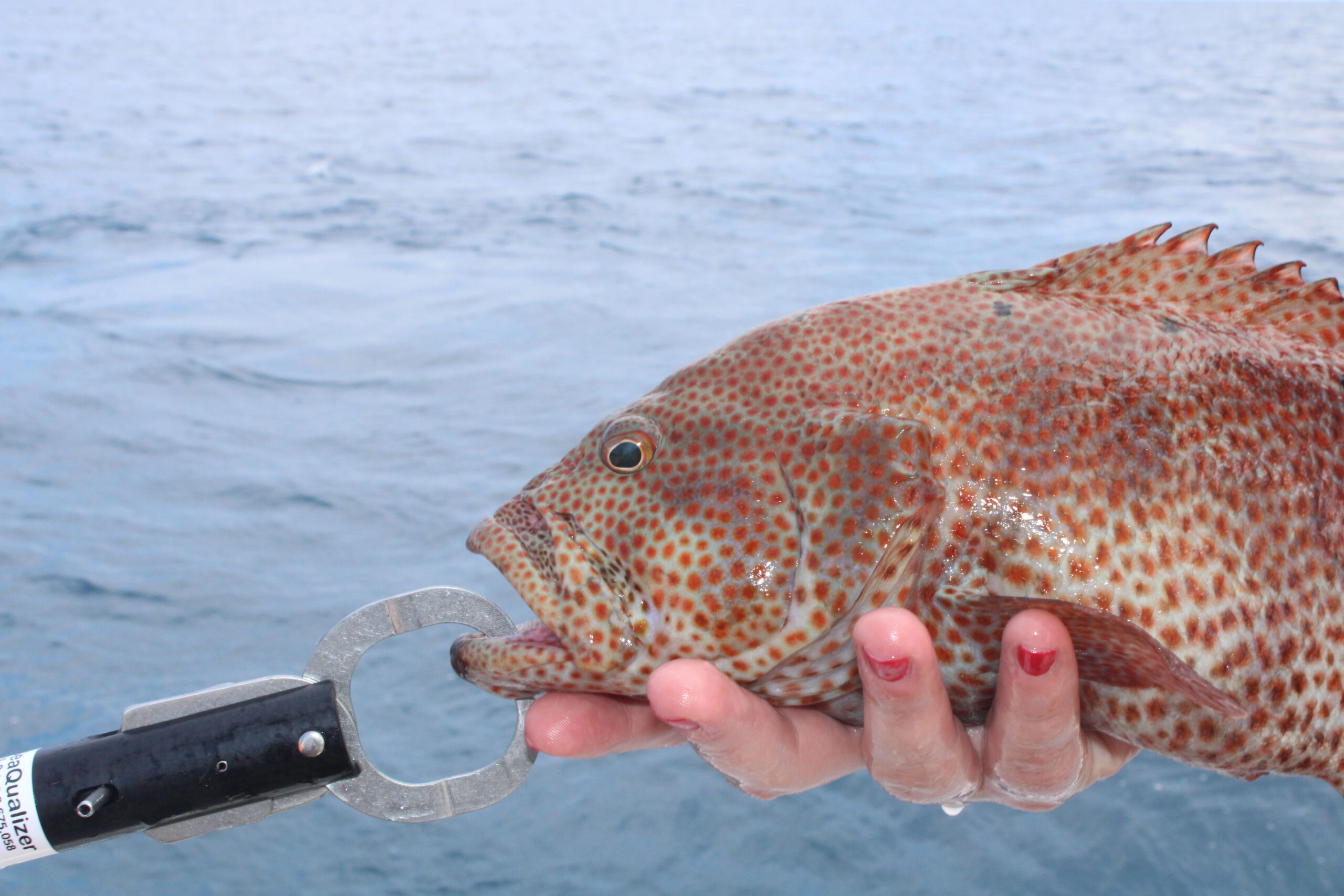Descending Devices Lessen “Barotrauma” in Deep-Water Fish

Sci NC has released a video special about how anglers testing descending devices in North Carolina fisheries may not only be conserving fish, but also promoting long-term stability in the fishing industry.
When anglers bring deep-sea fishes to the surface, gasses can rapidly expand inside the fish, leading to extreme bloating. This “barotrauma” occurs as the fish is brought to the surface and its swim bladder decompresses. When anglers release deep-water fish on the surface, the mortality rate is higher.
To combat this problem, fisheries managers have developed descending devices that attach to fishing rods and slowly lower fish back to their habitat’s original water pressure before releasing them.
“Even though fishers are required by law to have descending devices rigged and ready onboard, there is still a large swath of the angling population that are not familiar with these devices and the reasons for the regulations,” says Scott Baker, fisheries specialist with North Carolina Sea Grant. “When bottom fishing offshore, you don’t know if you will catch a fish that needs to be descended or one that can be kept.”
Certain deep-sea species populations, such as snapper, have suffered because of overfishing, and longtime anglers have witnessed the closures of many fisheries. However, fisheries experts foresee lower mortality rates after catch-and-release as more people use descending devices. As fish populations stabilize, in turn the fishing industry will see economic benefits.
Filmed in Beaufort, N.C., the video features David Hugo, the Reef Fish Extension and Communication Fellow at the time for Sea Grant and the South Atlantic Fishery Management Council’s Reef Fish Extension Project, as well as Meg Withers, the Council’s Citizen Science project coordinator.
“Sci NC put together a great story, and David Hugo captured some amazing underwater video,” says Baker. “I think the underwater camera work goes a long way in giving anglers confidence that descending devices do work — and that anyone can do it successfully.”
Learn more: SAFMC’s Best Fishing Practices.


